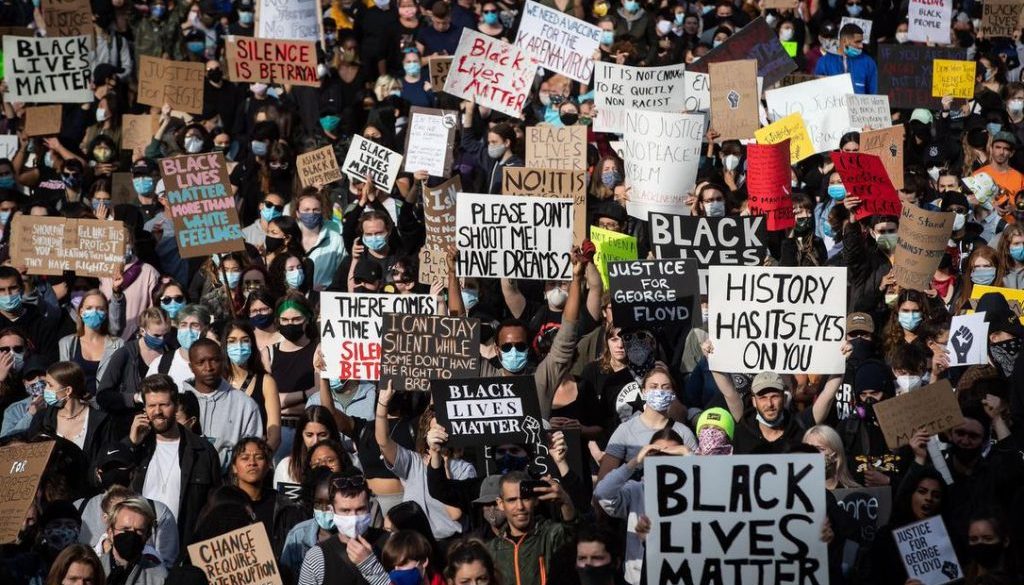Canada: Anti-lockdown protests and anti-racism marches
The response to the Covid-19 pandemic in Canada has mostly been led by provincial and territorial governments leading to differences in their impact on civil liberties. By early March, they had all announced states of emergencies and varying physical distancing restrictions. Data from the mapping project Policing the Pandemic identified Quebec, Ontario and Nova Scotia as the provinces leading the country in issuing tickets. On March 27, the Canadian federal government passed emergency measures aimed to offset the economic impact of the COVID-19 pandemic.
On April 20, a group of 25 people protested to end lockdown measures in Vancouver, carrying placards while escorted by several police officers. Despite it being the third anti-restriction protest, the B.C. Minister of Health described protesters as “marginal” and asked that they be ignored. On April 25, around 100 people protested in Toronto, some calling the virus a hoax while others complaining that lockdown measures were too harsh. Police said no arrests were made or tickets issued as the crowd was compliant and respected social distancing.
In the beginning of June, a wave of anti-racism rallies began in response to the death of George Floyd in Minneapolis, USA, but also of Toronto woman Regis Korchinski-Paquet. Thousands marched across the country in generally peaceful protests. On June 1, authorities and demonstrators clashed in Montreal where a small group of protesters smashed windows and started fires and police used teargas and rubber bullets on crowds. On June 6, two Toronto rallies marched to the U.S. consulate and police headquarters where demonstrators kneeled and cars honked in support. On June 13, anti-racism protesters blocked several Vancouver viaducts in support of Black Lives Matter and calling for police forces to be defunded.
The Canadian Civil Liberties Association (CCLA), an INCLO member, released an interim report reviewing emergency COVID-19 measures and warning about their potential lasting impact on civil liberties.
Pic: The Canadian Press/ Darryl Dyck/The Star
(Labelled for non-commercial re-use.)

